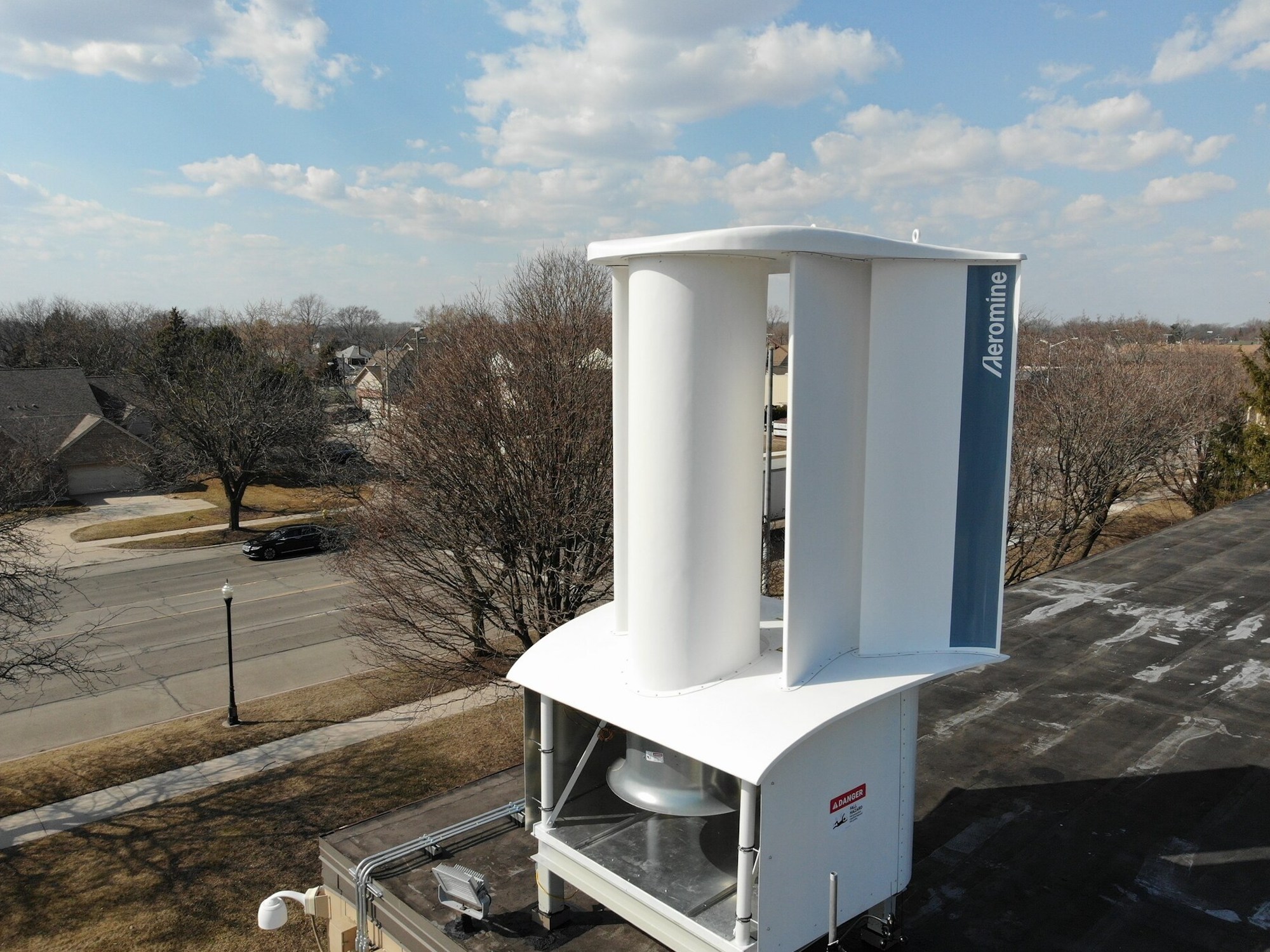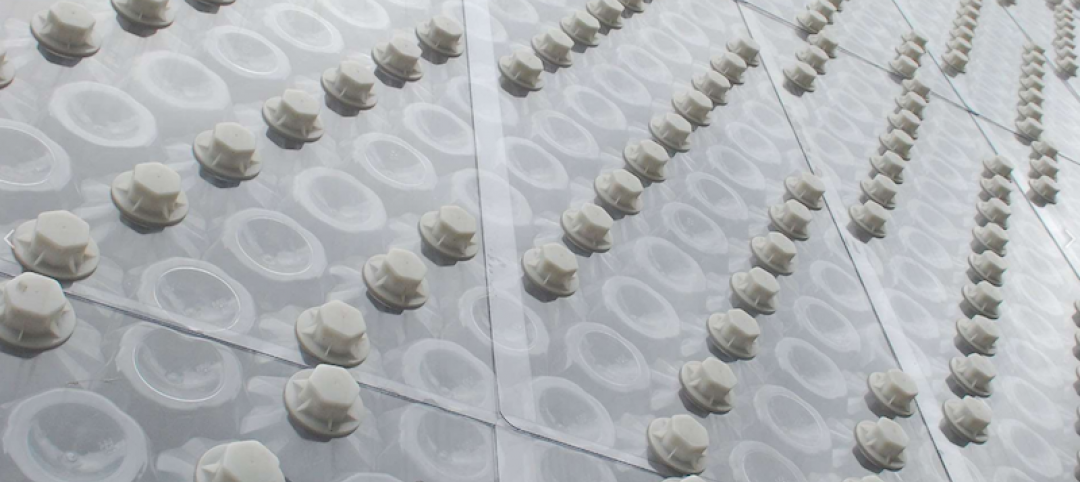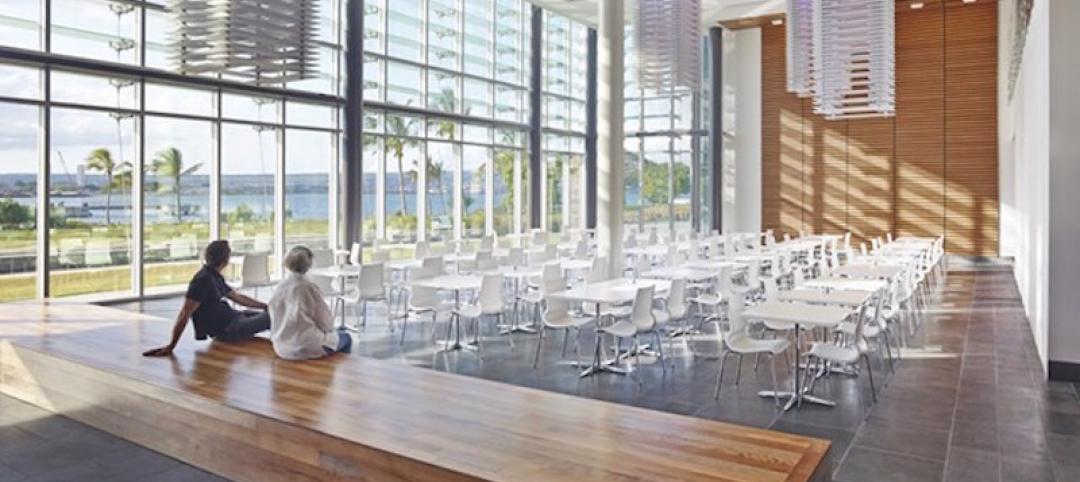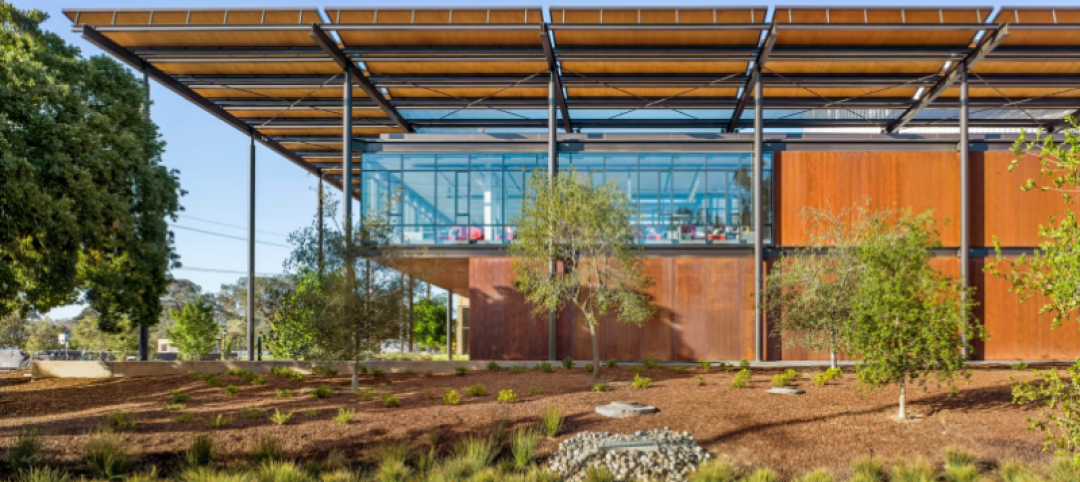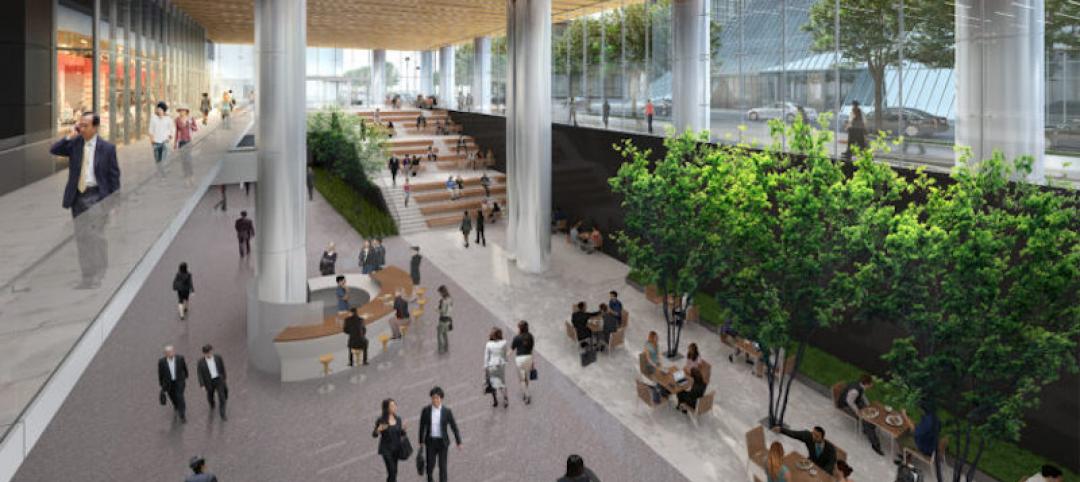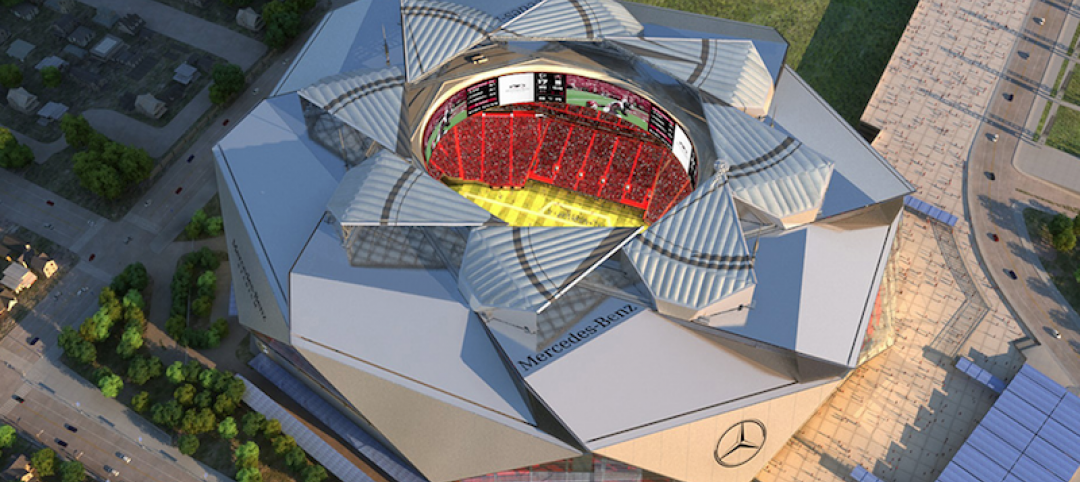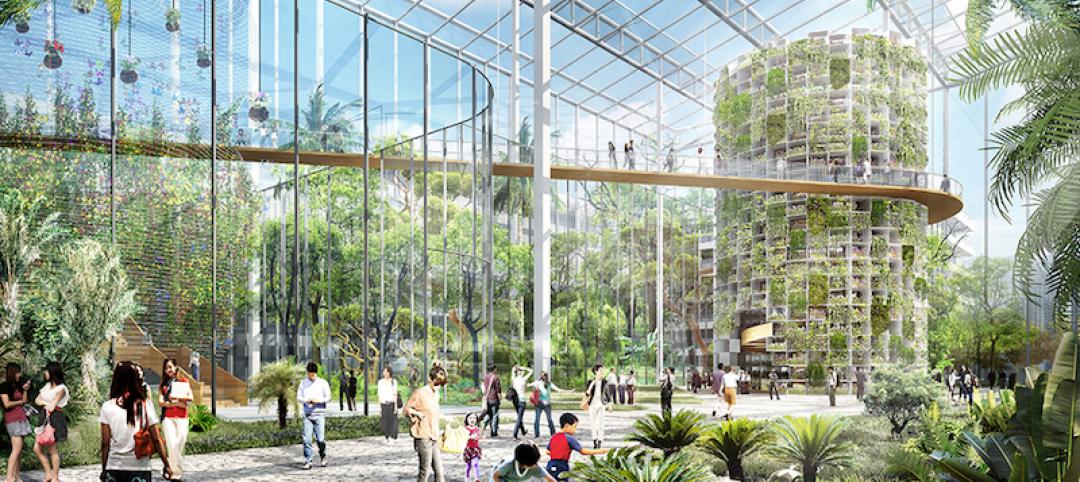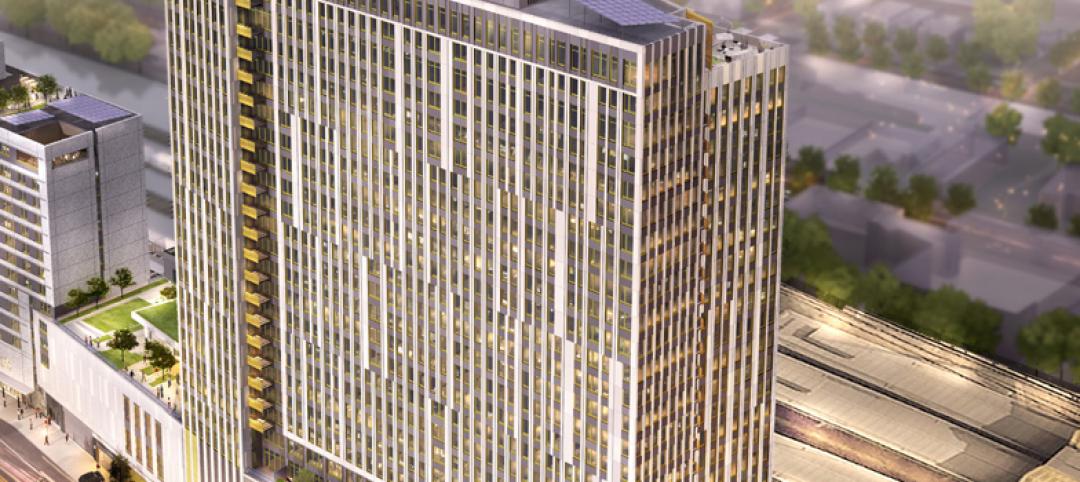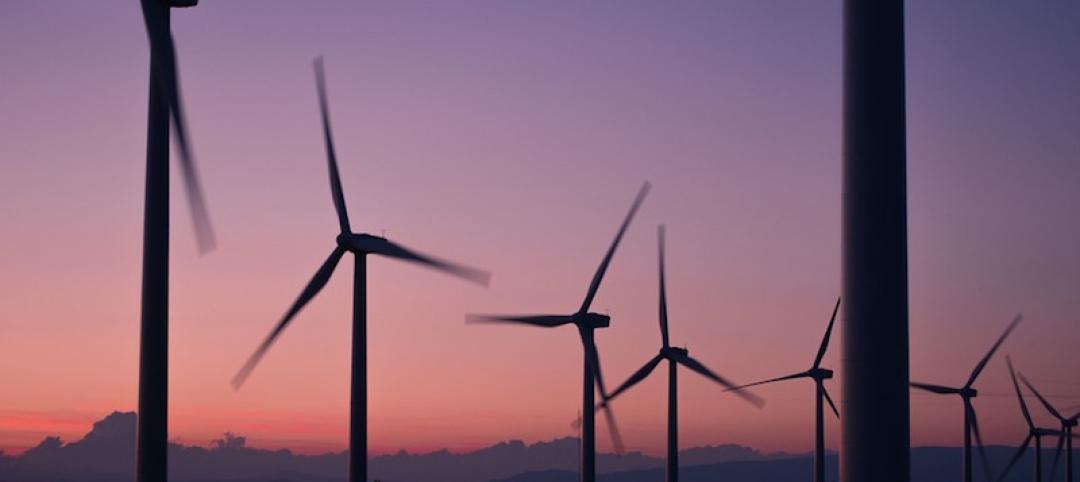Typically, “wind energy” conjures up images of massive turbines in large fields or out at sea. Aeromine Technologies has created a bladeless wind energy system that sits on the rooftops of commercial properties and provides onsite renewable energy. The motionless system integrates with a building’s existing electrical and rooftop solar systems.
In January, AEC Angels, an investment platform focused on emerging technologies in the architecture, engineering, and construction sectors, announced that it has endorsed Aeromine and that AEC Angels member Thornton Tomasetti has invested in the Houston-based company. AEC Angels is an alliance of industry veterans that evaluate and invest in early-stage companies with promising technological advances. Its members also include STO Building Group, Syska Hennessy, and SHoP Architects.
“Aeromine’s proprietary and innovative technology makes the promise of bringing the performance of wind energy to the built environment a reality that can increase on site generation 100-200% for any given project when paired with solar and battery storage,” Grant McCullagh, director at Thornton Tomasetti and AEC Angels’ managing director, said in a statement.
Building-integrated wind turbine with zero external moving parts
Aeromine has no external moving parts and no vibration. Like airfoils on a race car, the technology captures and amplifies a building’s airflow. Needing 10% of the roof space used by solar panels, the stationary and silent Aeromine unit can generate energy at any time and in any weather. Aeromine systems typically comprise 20-40 units on a building’s edge, facing the predominant wind direction.
Aeromine Technologies says its system is up to 50% more productive than other renewable energy alternatives. Combining Aeromine with rooftop solar can generate up to 100% of a building’s onsite energy needs, while reducing the need for energy storage.
Companies piloting Aeromine’s technology include BASF Corporation, which is testing the wind energy system at its manufacturing plant in Wyandotte, Mich.
Here is how the bladeless wind energy system works:
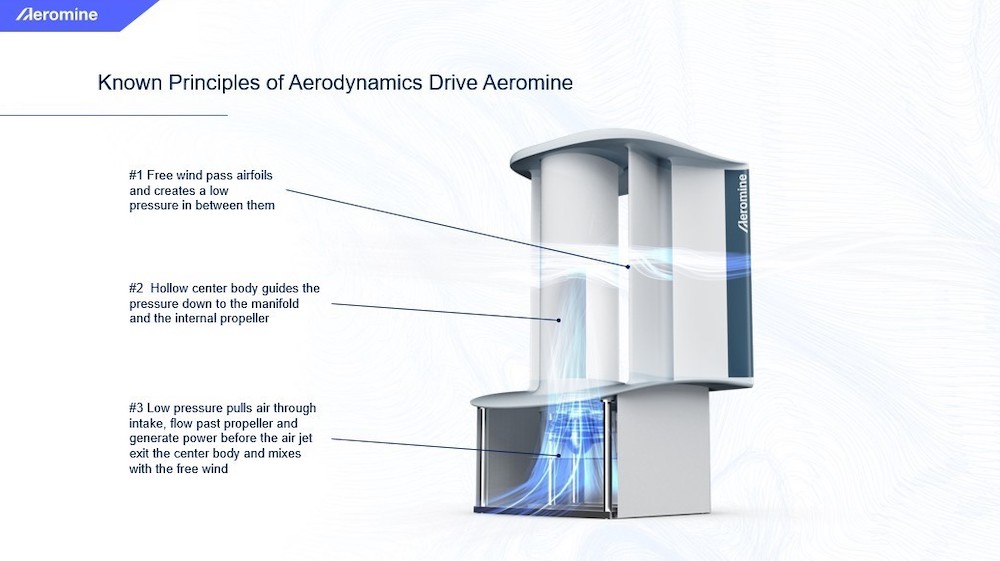
Related Stories
Sustainability | May 16, 2017
1.5 million recycled plastic bottles were used to build this nine-story structure in Taipei
The building is made of Polli-Brick, a building material that comes from 100% recycled Polyethylene Terephthalate Polymer.
Green | May 2, 2017
Green buildings don't have to cost more
What impact does sustainable design have on owners with a finite construction budget or developers who won’t own the building after construction?
Sustainability | Apr 20, 2017
The American Institute of Architects select the 2017 COTE Top Ten Awards
In its 21st year, the Top Ten Awards highlight projects that exemplify the integration of great design and great performance.
Sustainability | Apr 19, 2017
Embracing the WELL Building Standard: The next step in green
When you consider that 90% of our time is spent in buildings, how these environments can contribute to workplace productivity, health, and wellness is the logical next step in the smart building movement.
Sports and Recreational Facilities | Apr 19, 2017
Mercedes-Benz Stadium delayed until late August
The stadium is now scheduled to open on Aug. 26 in a preseason game between the Falcons and the Jaguars.
Multifamily Housing | Apr 18, 2017
Hanging Gardens-inspired CLT residential development proposed for Birmingham
Garden Hill will provide an ‘oasis-like residence’ for Birmingham’s growing, multicultural student population.
Green | Apr 14, 2017
Sunqiao looks to bring agriculture back to Shanghai’s urban landscape
Vertical farms will bring new farmable space to the city.
Sustainability | Apr 13, 2017
How to make a concrete bunker livable
SOM’s design for New York’s second Public Safety Answering Center leans on strategically placed windows and the outdoor environment.
Green | Apr 11, 2017
Passivhaus for high-rises? Research demonstrates viability of the stringent standards for tall residential buildings
A new study conducted by FXFOWLE shows that Building Teams can meet stringent Passivhaus performance standards with minimal impact to first cost and aesthetics.
Codes and Standards | Apr 6, 2017
Product-specific EPDs seen as key aid to earning green building credits
The product-specific EPDs allow designers to more quickly earn a LEED v4 credit in the Materials & Resources category.


